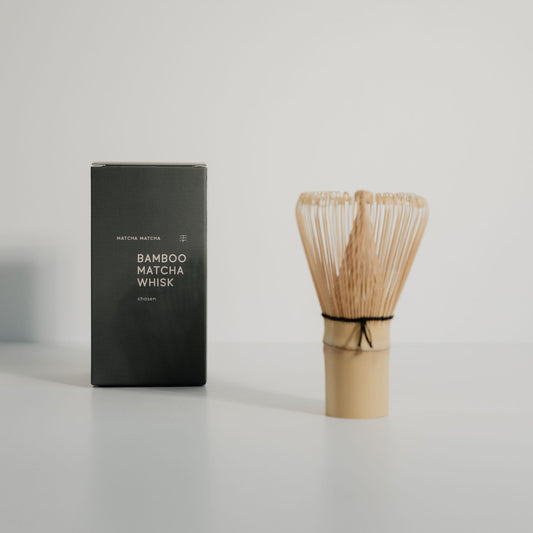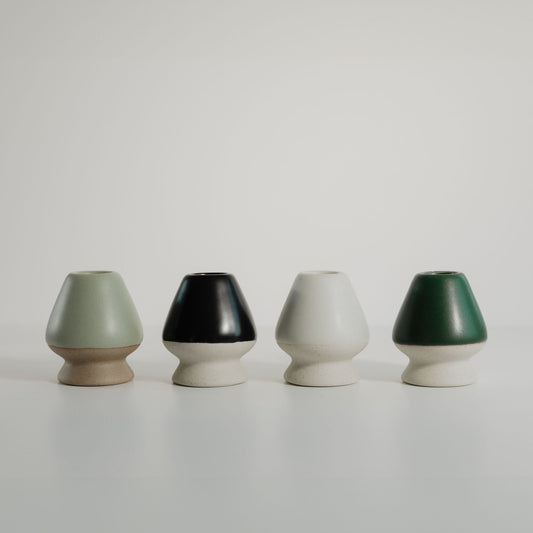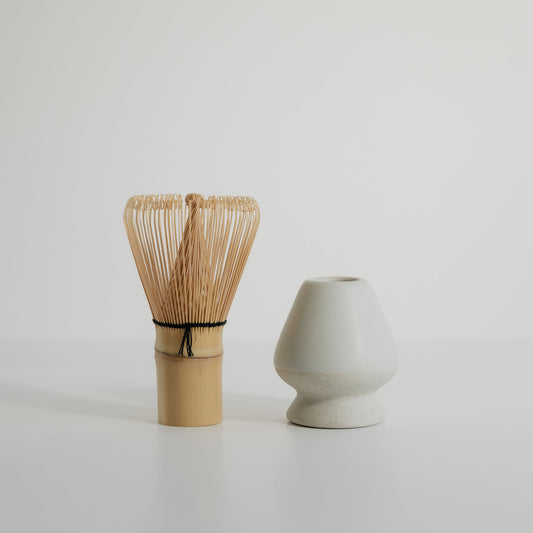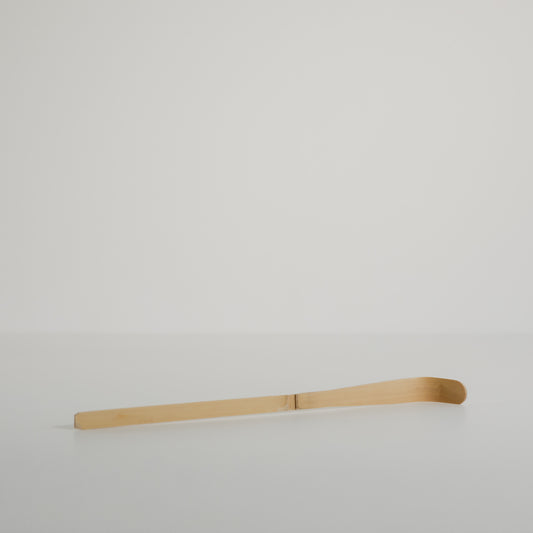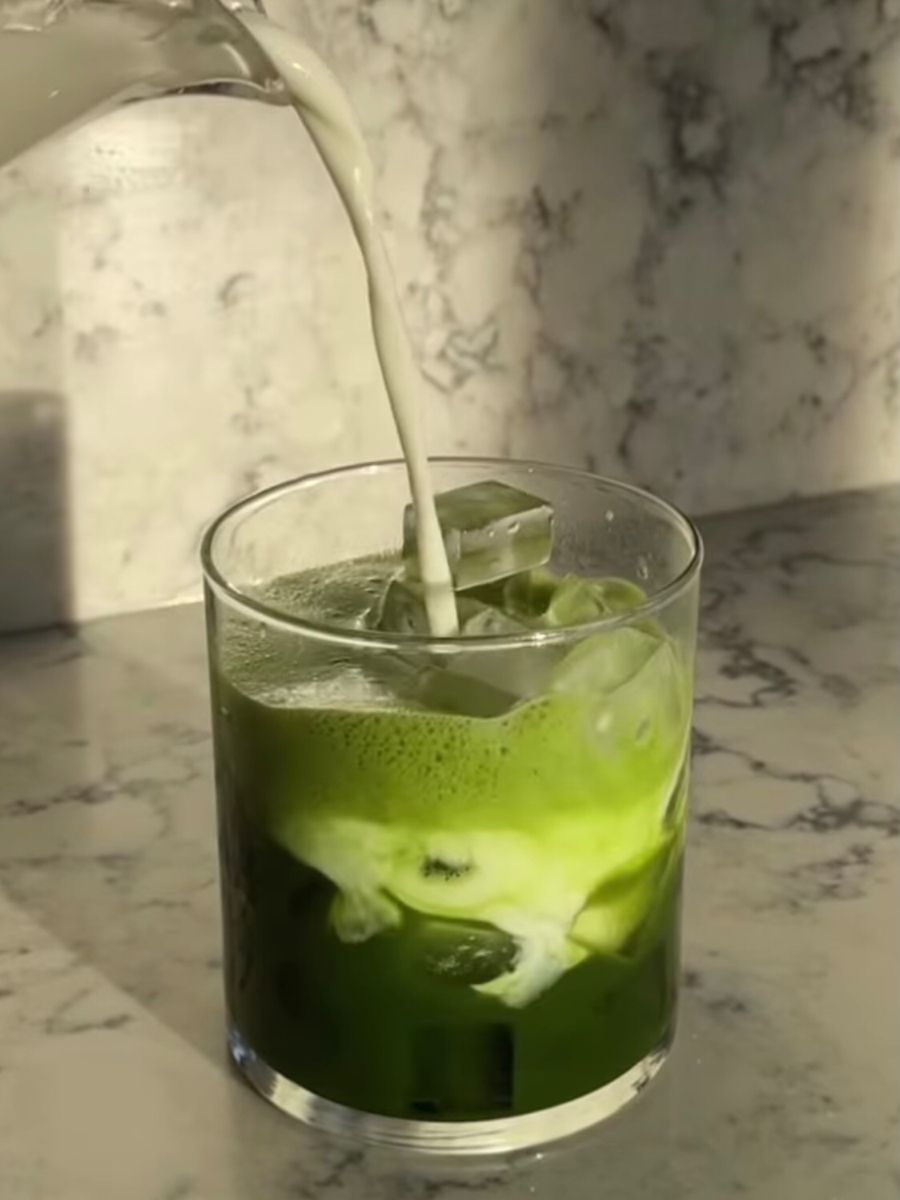
Matcha vs Coffee

If you find it nearly impossible to make it through the day without your coffee hit, you’re not alone. Coffee is one of the world's most commonly consumed beverages, and it’s become a staple in the pursuit of keeping up with our modern world. But with caffeine lovers praising its laundry list of health benefits, coffee also comes with an equal amount of side-effects.
Stress is one of the greatest causes of imbalance within the body. From hormonal imbalances and mood disorders to immune dysfunction, stress plays a role in the progression of many serious health conditions. Looping it back to your energetic side-kick, coffee allows us to experience an abundance of energy - but at a cost. From increasing our stress hormones to disrupting our sleep, coffee can have a dramatic impact on our nervous system that often leads to burnout if we don’t notice the early signs. Although it’s not all bad and there are actually many health benefits of consuming your daily cup of coffee, the disadvantages come from the need for increased tolerance. Because the stimulating and mood enhancing effects of caffeine are reduced overtime - it doesn’t take long for our daily cup to turn into three.
Both coffee and matcha provide similar health benefits, with matcha being a more gentle alternative to your standard cup of coffee.
Caffeine
It’s rich in polyphenols and powerful antioxidants, and as coffee-lovers claim, it does have an impressive amount of health benefits. Aside from being a delicious crutch in times of fatigue, coffee has been shown to reduce low mood, increase longevity and enhance athletic performance. But with the well-researched health benefits, there are also many downsides to coffee that can wreak havoc on your hormones.
As a rich source of caffeine, coffee naturally causes our stress hormones to surge, which provides us with those stimulating effects that make us feel so energized. These energy-boosting effects can be incredible for our productivity, cognitive function and ability to concentrate - but in reality, the surge of these stress hormones tips our body into a state of fight or flight. Caffeine enables our emotions to take charge, and it’s no surprise that irritability and anxiety are the most commonly seen emotional effects when it comes to caffeine consumption. While it’s true that some of us are more susceptible to these emotionally driven, stress reactive responses to caffeine, the addictive nature of coffee means that it doesn’t take long for our tolerance to increase. Soon our daily ritual turns from one cup to two or three, and that’s when these negative effects come into play. Depending on the person, the caffeine in coffee can also lead to anxiety, jitters, and it can seriously impact sleep. Breaking the caffeine cycle is tough, but saying goodbye to your daily flat white doesn’t mean you need to go without. Thankfully, there are many amazing alternatives to coffee. Enter: matcha.
Matcha
While there are pros and cons to both coffee and matcha, there’s no denying that the latter is a more nourishing option. Matcha is having a real moment right now, and for good reason. With ten times more antioxidants than your standard green tea, matcha is full of beneficial plant compounds that aid in reducing inflammation. Matcha is particularly rich in the catechin epigallocatechin gallate, an antioxidant that has been well-researched for its powerful healing abilities. Matcha naturally contains a gentle form of caffeine, but the amount is still pretty significant in comparison to coffee. A cup of matcha prepared the traditional way contains up to 80 grams of caffeine, in comparison with the 90-100 grams of caffeine you’ll get from your standard cup of coffee.
If you struggle waking up in the morning or if you didn’t get enough sleep, matcha can provide you with all the same energy-boosting benefits as coffee, but without causing you to crash and burn. Arguably, what makes this drink so special is its amino acid profile. Matcha is one of the greatest food sources of L-theanine, an impressive amino acid that reduces stress while increasing focus. Not only does L-theanine promote relaxation while giving you an energy boost, it also reduces the effect of caffeine and causes a more gentle boost of energy. Like coffee, L-theanine has the ability to cross the blood brain barrier which means you can feel its calming effects quite rapidly. L-theanine also works particularly well in combination with caffeine, which is why matcha has gained so much attention for its unique ability to encourage relaxation while boosting cognitive function.
So which is better?
Of course we are biased, but if you’ve been feeling the pull toward living a life without coffee - matcha is an incredible alternative. Not only does this daily ritual provide you with the same comfort as coffee, the health benefits of matcha speak for themselves. From reducing inflammation and providing relief from stress, to being a natural energy-booster. Matcha is a safe and effective way to get your caffeine hit, without the added anxiety.
Read more about the skin healing benefits of matcha in our most recent blog post ✨
